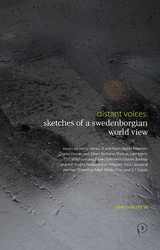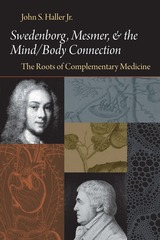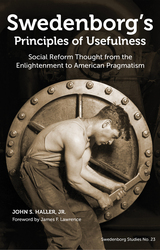

Complementary and alternative healing encompass a wide range of practices that share a common ground: the belief that our physical well-being is inextricably linked to an unseen world beyond our physical senses. Our view of that world can be traced to two key thinkers: Emanuel Swedenborg and Franz Anton Mesmer.
Who were these men, and what shaped their thought? How did their ideas capture the public imagination? How did they speak to movements as diverse as utopianism, Spiritualism, psychic healing, and homeopathy? Historian John S. Haller traces the threads of Swedenborg’s and Mesmer’s influence through the history of nineteenth-century medicine, illuminating the lasting impact these men have had on concepts of alternative healing.

As evidenced in the self-reliance of the great Ralph Waldo Emerson, who went so far as to refer to the early part of the nineteenth century as the age of Swedenborg, the socialist tendencies of Henry James, Sr., and the pragmatic philosophy of his highly esteemed son William James, Swedenborg has had a powerful impact on a number of prominent individual thinkers and their lasting traditions.
With love for one’s neighbor sharing pride of place among his ideas, it comes as no surprise that Swedenborg’s outlook on human interaction worked its way into the various social reform movements that vitalized the American landscape during the nineteenth and early twentieth centuries. From the more politically oriented single-tax movement of Henry George to the utopian aspirations of Charles Fourier and the more spiritually inclined social gospel and pastoral clinical movements, those who took Swedenborg’s principles of usefulness to heart sought ways to reflect the divine design in human society.
John Haller’s treatment of the era draws a magnifying glass to those intellectual titans whose fortitude in the face of psychological and social adversities stands as a testament to the robustness of Swedenborg’s concept of usefulness. As James F. Lawrence, Dean of the Center for Swedenborgian Studies at the Graduate Theological Union in Berkeley, California, so aptly states in his foreword, “this book tells stories and builds perspectives that will prove without a doubt to be very useful.”
READERS
Browse our collection.
PUBLISHERS
See BiblioVault's publisher services.
STUDENT SERVICES
Files for college accessibility offices.
UChicago Accessibility Resources
home | accessibility | search | about | contact us
BiblioVault ® 2001 - 2024
The University of Chicago Press









